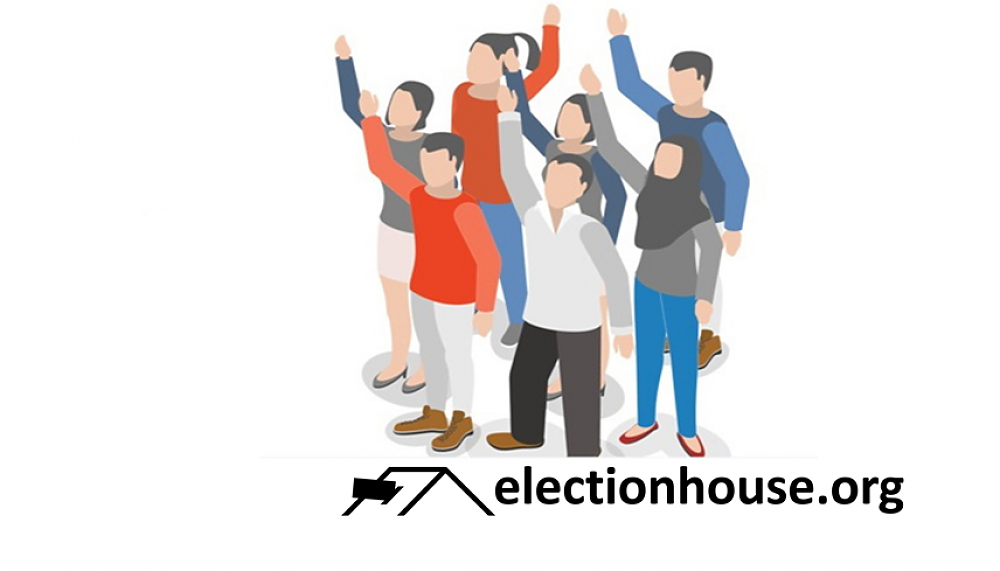The official website of the House of Representatives of the Republic of Indonesia (DPR RI) informs that the representation of youth from the 2019 DPR (House of Representatives) elections is only 12.5% (72 out of 575). This percentage of youth representation in the legislative body is still significantly lower than the total percentage of youth in Indonesia. The official submission of this figure by the DPR is a good thing considering that, in the results of the previous election, the number of DPR youths had not even been a concern.
The DPR defines youth politicians as those aged below 35 years old. However, if the term "youth" refers to the definition in Law Number 40 of 2009 concerning Youth, the percentage would likely be even lower. According to Indonesian law, youth are individuals aged between 16 and 30 years old.
The number of youth representation is significantly lower when compared to executive institutions/positions. Law Number 7 of 2017 concerning General Elections even prohibits young people from running for President/Vice President and requires a minimum age of 40 years. In the same law, youth are also prohibited from becoming candidates for the General Election Commission (KPU) and the Election Supervisory Body (Bawaslu), both at the central, provincial, and regency/city levels.
The Regional Head Elections Law also prohibits youth from running for Governor/Vice Governor positions. The minimum age requirement for a governor is 30 years, while youth are defined as individuals aged between 16 and 30 years old. This discriminatory requirement creates a structural barrier, making it impossible for any youth to become a governor or vice governor.
The minimum age requirement for candidacy in regency/city elections is 25 years. It can be said that there are very few youth who become regent/mayor or deputy regent/mayor. Even if a youth manages to get elected as a regent or mayor, it often appears to be more of an extension of their parents' political dynasty.
What's even more disheartening is that young people have never held the position of Minister leading the Ministry of Youth and Sports. Referring to the age of ministers in charge of youth affairs from the governments of 1999-2004 to 2019-2024, the average age of these ministers is 49.1 years. The youngest Minister of Youth and Sports was Dito Ariodtedjo (33 years old) who served in the later period of the Joko Widodo-Ma’ruf Amin administration (2019-2024). The oldest Minister of Youth and Sports was Muhadjir Effendy (67 years old) who became the first minister from the Cabinet of the Reform Government after the fall of Soeharto, achieved by the efforts of students and youth. Throughout this time, the presidential prerogative has not been optimally used to affirmatively empower the youth.
Additionally, based on information gathered from the news, there is no youth organization led by a young chairman within the age range specified in Law 40/2009 (16-30 years old). All of them are above 30 years old, with an average age of 49.5 years. The youngest is Dzulfikar Ahmad (36 years old), Chairman of Pemuda Muhammadiyah. The oldest is Japto Soerjosoemarno (74 years old), Chairman of Pemuda Pancasila. For the activists of these organizations, "youth" is perceived as a spirit of youthfulness rather than a specific age range.
Ageism and quality
Discriminatory laws and a government that has not sufficiently involved the youth could be related to ageism. This is a judgmental view of a person or group based on age (Butler 1969). One form of discriminatory view at this age is doubting youth as leaders.
The World Health Organization (WHO) explains that ageism refers to the stereotypes (how we think?), prejudices (how we feel?), and discrimination (how we act?) directed towards people based on their age. It can be institutional, interpersonal, or self-directed. Institutional ageism refers to laws, rules, social norms, policies, and institutional practices that unfairly limit opportunities and systematically disadvantage individuals due to their age. Interpersonal ageism occurs in interactions between two or more individuals. Self-directed ageism happens when ageism is internalized and turned against oneself (Gutterman 2022).
The view of ageism towards youth is similar to that of patriarchy towards women. Women's political identity was previously not accepted, also because of quality doubts. Women were once banned from voting in elections because they were not worthy. One of the Indonesian survey institutions (2023) said that more than 50% of respondents thought that the president of Indonesia should be a man.
In general, youth are still perceived by many people in Indonesia as an age group that is not suitable for leadership. Youth still have limited experience, and their capabilities are considered not yet sufficient (Wahyudi 2021).
That consideration was also part of the consideration of the Constitutional Court (MK) in rejecting the judicial review of the requirements for regional head candidacy. Based on Decision Number 58/PUU-XVII/2019, the judges who safeguard democracy and the constitution, opined that the determination of candidacy age in elections is not within the authority of the Constitutional Court, and it is delegated to the legislative institution named the DPR.
When the requirement for political candidacy becomes youth-oriented, we may expect it to face challenges in being approved by the DPR. The legislative branch of government, the DPR, lacks incentives to support such a change. The members of the DPR are elected through elections, which can lead to the creation of exclusive requirements. The DPR is composed of political party factions, all of which are led by older individuals. Therefore, the DPR may be reluctant to introduce youth-oriented candidacy requirements in elections. All party leaders aspire to become President/Vice President and may not be willing to increase competition from the youth sector.
From the list of names of political party leaders in the DPR, none of them are within the age range defined as "youth" in the Youth Law (maximum 30 years old). The average age of political party leaders is 63 years old. The youngest party leader is Agus Harimurti Yudhoyono (46 years old), the Chairman of Partai Demokrat [the Democratic Party], who is the son of the previous Partai Demokrat Chairman, Susilo Bambang Yudhoyono (former President of Indonesia, 2004-2009 and 2009-2014). The oldest political party leader is Megawati Soekarno Putri (77 years old), Chairman of Partai Demokrasi Indonesia Perjuangan [the Indonesian Democratic Party of Struggle] (PDIP), which is the political party with the largest number of seats in the DPR. To pass the youth age requirements for the candidacy for president/vice president and KPU/Bawaslu members, more than 50% of the seats in the DPR are needed, which unfortunately are dominated by older members and senior leadership in political parties.
The dominance of older individuals in political party leadership is related to the Political Parties Law, which includes very stringent requirements for party establishment. This has resulted in political party institutions that are distant from the representation of youth. The stringent requirements tend to favor older individuals in establishing political parties, and as a result, the membership of these parties is predominantly comprised of older individuals. This dominance of older individuals within political parties has led to difficulties for young people to join political parties, as they are often perceived as lacking both the quality and financial resources.
Clarification of the argument against supporting youth quality can be in the form of counter-questions. If youth are demanded to be of high quality, why isn't there a similar demand for quality among older members of the parliament who actually dominate the legislative bodies? The Global Corruption Barometer (2020) places parliaments (DPR/DPRD) as the most corrupt institution, which is a picture of state institutions controlled by the old. []
USEP HASAN SADIKIN











